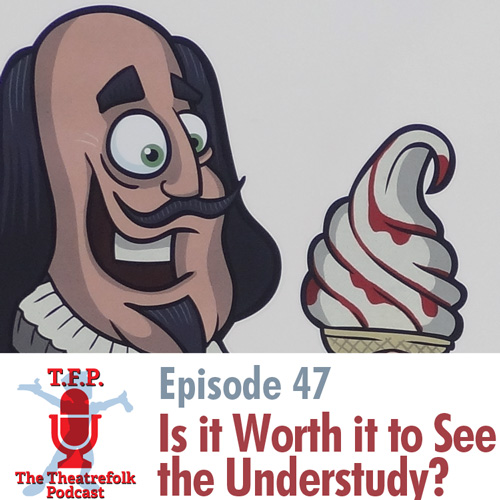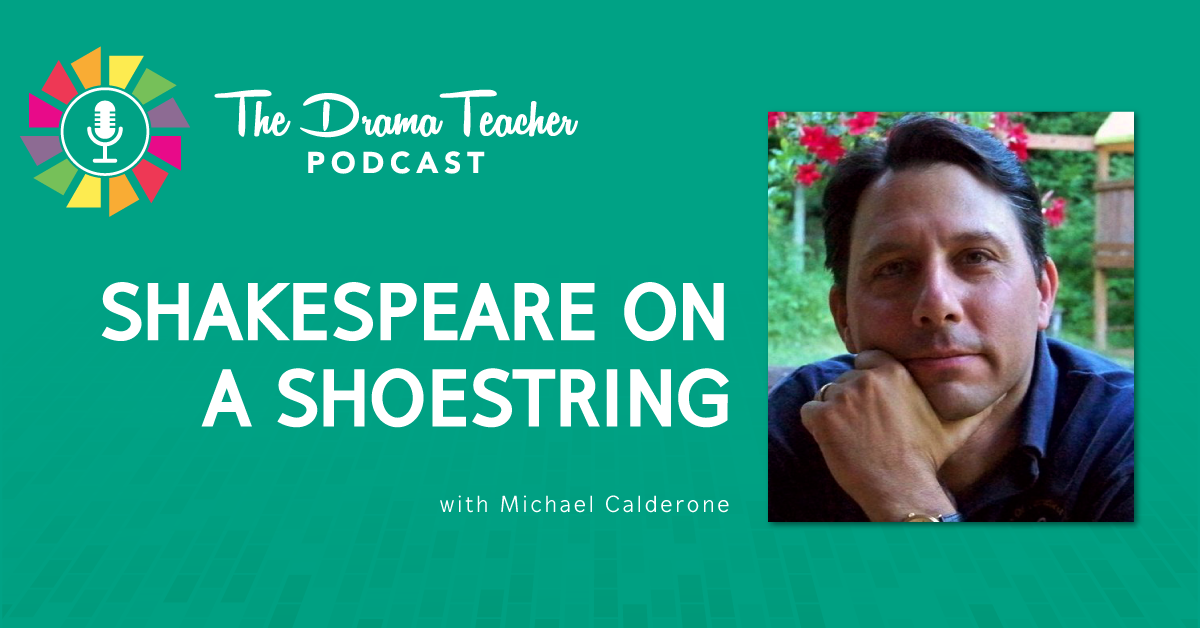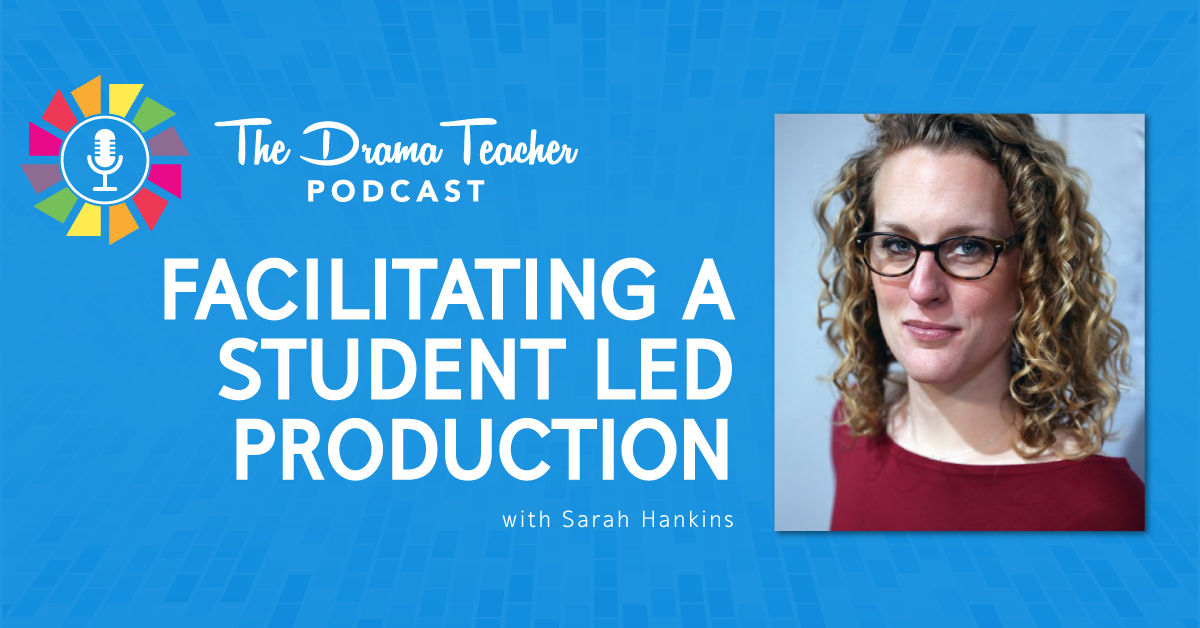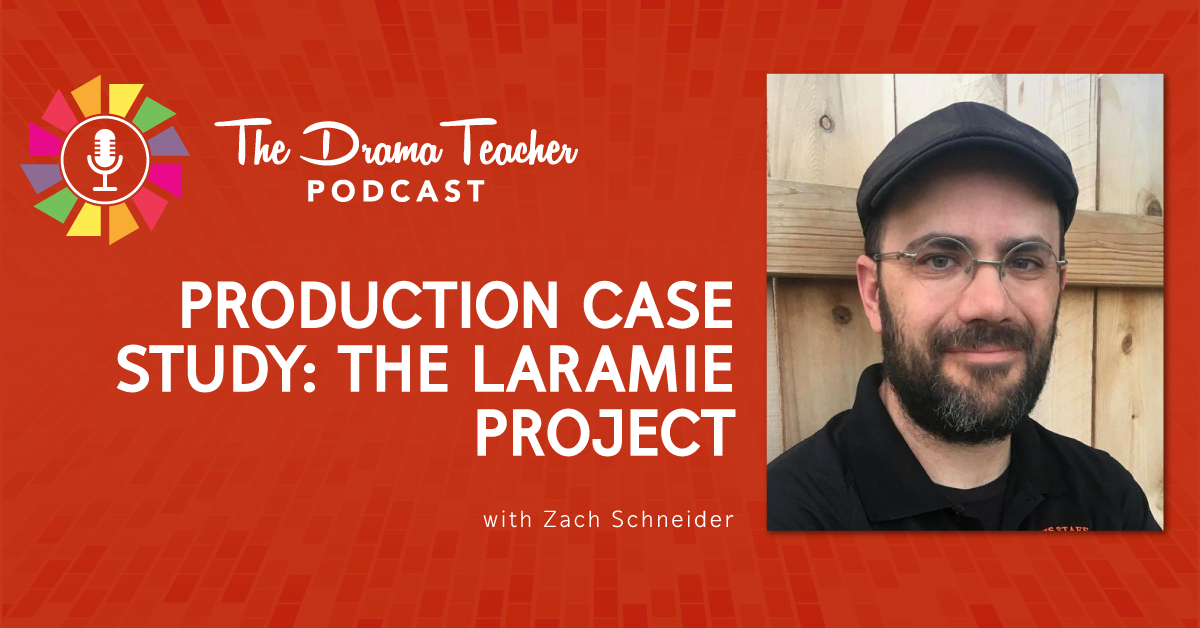Is it Worth it to See the Understudy?
Episode 47: Is it Worth it to See the Understudy?
This podcast continues a series of talks between Lindsay and Craig on the plays they saw during their trip to England. This week, they talk about their mistake buying tickets for Hamlet at the RSC, not realizing that it was for the understudy performance. At first it was a disappointment but then after seeing the show, a completely unique theatre experience.
Show Notes
Subscribe to The Theatrefolk Podcast
Episode Transcript
Lindsay: Welcome to TFP, The Theatrefolk Podcast! I am Lindsay Price, resident playwright for Theatrefolk. Hello, I hope you are well, thanks for listening. Today, Craig and I continue our jaunt through England, and we have finally made it to the RSC the Royal Shakespeare Company. Oh, that was the most horrible accent ever! First, lets do some Theatrefolk news! So, this podcast goes out on a Wednesday, and this particular Wednesday is June 26th, so we are in the thick of our week at the International Thespian Festival. If you’re standing in Lincoln, listening to your iPod, listening to me talking to you on your iPod and you haven’t made it over to the vendor area yet, get over here! We’ve got free electronic catalogs with free resources, we have free monologue CDs for students, 20 guys and 20 girl monologues, all free. We’re giving away free scripts to those who come up to the table with the daily secret password, which is posted each day on the Theatrefolk Facebook page. If you’re not in Lincoln, I’m done talking about it, so you can breathe a sigh of relief. Phew. Lastly, where oh where can you get this podcast? We post new episodes every Wednesday at theatrefolk.com and on our Facebook page and Twitter. You can find us on the Stitcher app, and you can subscribe to TFP on iTunes. All you have to do is search on the word, what is it, ah yes, Theatrefolk.
Episode 47, is it worth it to see the understudy? So, when Craig and I talked about what theatre we wanted to see when we took our trip to England, going to Stratford on Avon, and seeing something at the Royal Shakespeare Company was certainly on the list, and then, we found out that Hamlet was playing, and we had to see it. It just sort of in our minds went, this is the quintessential sort of England theatre experience, right? Then, when we bought our tickets, they were so remarkably cheap, we couldn’t believe it. Then, we found out why. It was the understudy performance, where all the understudies play leads, and leads play the minor roles. So, let’s head off to Stratford to hear our thoughts on this most interesting question. Ta ta!
Craig: So, we’re seeing the Royal Shakespeare Company production of Hamlet in Stratford, up on Avon, and what we didn’t know when we booked the tickets, and we should have known I suppose, because the tickets were only five pounds a piece, was that what we were seeing was an understudy rehearsal. When we first discovered that, I was a little bit disappointed, but then I quickly realized that we didn’t know anybody who was in the cast anyways. So, it wasn’t very important, we wouldn’t be missing anyone in particular.
Lindsay: And, how cool is it, because what other theatre company does a public understudy show?
Craig: So, there was a curtain speech before the show, and they explained that this was the one and only time that they do a rehearsal like this. The show is about two months into the run, and everyone in the cast that has a lower role understudies obviously, other roles in the shows, some understudies more than one role in the show. This is the one time that they put the whole show together with just the understudies.
Lindsay: But that’s not all. The people who play the larger parts, like Hamlet, Ophelia, and Polonius…
Craig: They had to fill in the lower parts so those roles would be covered as people’s ranks moved up. For example, we saw the person who plays Hamlet play the role of the Player King, which is probably the smallest part in the show, I don’t even think he had any lines.
Lindsay: He didn’t have any lines. But he was very joyful in his part.
Craig: He seemed to be loving it.
Lindsay: And, wouldn’t you agree Craig, this was quite a singular experience that we’ve been having today.
Craig: Yes, I feel so lucky to be here, because again, as they explained in the show, some of these people will never have the opportunity to play these roles again.
Lindsay: Then it was kind of cool because it was quite like I think it would have been in Shakespeare’s time, where some people were playing five roles. So, there’s the guy who played Laertes showed up five seconds later as Reynaldo. Marcellus was, you know, I’ve seen him three times.
Craig: We think Claudius was also the ghost.
Lindsay: I have to look that up. So, the one exception was that the fellow who was the understudy for Claudius is unfortunately not able to participate today.
Craig: The real Claudius was understudying the understudy for Claudius.
Lindsay: And let me tell you, I think that in itself has been a treat. This is the Royal Shakespeare Company, and the theatre is incredible.
Craig: Okay, can I start?
Lindsay: Oh please, go.
Craig: I have a lot to say about this show.
Lindsay: Yeah, it’s intermission. It’s been an hour and a half. We are giddy.
Craig: The first thing I want to say, let’s not name any names, but at the professional theatre that we managed to see most of our Shakespeare at in Canada, there is a standard accent that they use that they are taught, and everyone sounds uniformly the same. There is a standard accent there. Everyone here manages to have their own accents, don’t they? I mean Hamlet is Irish.
Lindsay: There is a mix, a wonderful mix. There is a mix of common and posh, you can hear in the background they are telling us to go back in, but we wanted to really start this. I think the lighting is incredible, I’ve never been so intrigued by how someone has used lighting in a show. One thing that we didn’t notice when we came in and sat down is there is a whole sort of…
Craig: There is a moat. There is the main playing space, and then around it is a black moat that in normal light looks like slate. Under the theatrical lighting, you can see that there are skulls embedded in it, which will come into play later in the second half.
Lindsay: I think some of the understudies are doing a better job than others. I think Hamlet, the guy playing Hamlet, I don’t know if he was just nervous in the beginning, because he gets better and better. I find him really getting more and more engaged.
Craig: That’s the rule too, because he starts off the play very confused, he doesn’t know what is happening, he just dealt with the death of his father.
Lindsay: I’ll tell you this; anyone who says that you can’t understand Shakespeare is really bogus. It’s the people who are saying it that have to understand what they are saying, and then they convey it.
Craig: Okay, we have to go. The thought I had during the show is we need to remove Shakespeare from the English curriculum because it has absolutely no place there. Thank you. That is all.
Lindsay: This is part two of our conversation about the Royal Shakespeare Company’s production of Hamlet. We are now in the car. We’re motoring down the M-40.
Craig: I’m being very careful to stay in my lane, even though I want to drift. I’m not used to driving on the right hand side.
Lindsay: Yes, Craig is being a very, very conscientious driver. So, I’m going to be doing most of the talking. The first thing I have to say is that theatre is always a singular experience. Every time you go, there is going to be some thing that is not exactly the way it is the night before, and won’t be the next night. I have to say that I almost had tears in my eyes at the end of the show, because as we said before, this was a public understudy performance. All of the understudies got to perform. It’s quite possible that the guy who played Hamlet will never get to play it again unless something comes up, but at the end of the show, he’s lying on the ground, everyone is lying on the ground, the play is over, it ends pretty spectacularly. The lights come up, and the first thing he does is he starts to laugh.
Craig: It was that laugh where, I can’t believe I just did that. I thought his performance was quite flawless. There were flubs here and there from some of the other characters, but he was dead on.
Lindsay: He was a great Hamlet, and if I wouldn’t have known he was the understudy…
Craig: I never would have known he was the understudy.
Lindsay: I thought he did a really nice job of strength and weakness. His soliloquies were always engaging. I really enjoyed his performance, and I loved the moment where we got to see his inner thoughts. Then, what was so lovely is afterward, every actor was clapping him on the back, the Hamlet that plays it regularly gave him a huge hug. You just knew that it was an experience, again, it’s never going to happen again for this production, and it just so happens that this was the show that we saw. Craig and I were both like, “oh, we’re seeing understudies”, but now I’m kind of tickled that we saw understudies. It’s something we don’t ever get to see. I’m really glad I had this experience. I think Hamlet is long. We started the show at 1:00 and ended at 4:30. Even they did a little bit of trimming, but not a lot. I’m not really sure it’s necessary to see the whole thing. This is nothing against the pace of this production, right Craig?
Craig: No, the pace was lovely. It was urgent and important. They were moving the play along at a good pace without ever feeling rushed. They weren’t afraid to take their moments where moments were important to be taken. They weren’t afraid to push it a little bit when things could be pushed. What really impressed me, in terms of theatre, is that Hamlet even in this cut was a three and a half hour play that takes place in dozens of locations. All of this was accomplished without a single blackout, nary a single pause between scenes. Every time a scene was about to end, the characters from the next scene were coming on. If scenery had to be moved, it was moved during a scene. In fact, we saw the craziest scene I’ve ever seen done live on stage. During a scene, people came in and took parts of the floor up to become the dirt that becomes the graveyard. This was happening while a scene was going on. And you know what, it did not affect the show in any way other than to move it along and keep us in the theatre of the moment. We know it’s theatre, we can see the audience, we can see the lights. There is an artifice when you go see a play, and that’s why I’m always so bothered when there is a blackout used to change some scenery. It’s just not important, you’re not fooling anyone, you’re only interrupting the play. This was a great example of how you can move a play along without blackouts and the audience just goes with it. We’re there, and we’re a part of it. We’re willing to go along with whatever it is that you show us. When a blackout happens, it interrupts everything. It’s a pause, and it lets us start thinking about the real world, and what groceries we have to pick up at the end. Like I said, keep the play moving, it just works beautifully. Never worry about the audience seeing the mechanics of what’s happening.
Lindsay: Everybody knows it’s theatre, and I’ll tell you this for nothing. What really amazed me, let’s remember, in Shakespeare’s time, there was no such things as the blackout. There were no lights. It did not exist. I was amazed at how often, at the end of one scene, whoever the character was talking about was the first speaker of the next scene. More often than not, a good example, Hamlet is talking about Claudius, and Claudius comes right on stage. He’s in his own moment. He doesn’t acknowledge Hamlet. He’s in his own world.
Craig: He’s in a different location.
Lindsay: He’s in a different location. I just felt this …
Craig: Look at the dramatic irony too. That’s the person he’s thinking about, and you see them while he’s talking about them.
Lindsay: I get a wonderful goose pimple tickle of theatricality when the person who another person is talking about just walks right by them. I just thought that was great. Another interesting theatrical thing that happened in this production is the actor that played Claudius also played the ghost, which I’ve never seen and I liked.
Craig: It fits just fine, it’s a fair double. They are never onstage at the same time.
Lindsay: No, in fact in Shakespeare’s time, the whole thing was performed by maybe 10, 12 guys at the most. The partnerships of characters were probably quite interesting, like Marcellus and Bernardo, who are Hamlet’s friends, more than likely played Rosencrantz and Guildenstern, who are his foes. That was a really interesting thing too to see these understudies play multiple roles. I loved it. I did not love Ophelia. I don’t think that she was directed well. I think that Ophelia, if she is going to go mad, we need to see this struggle in her between her love for Hamlet, which is overridden by her love and obedience for her father. I just didn’t get that, I didn’t get the inner struggle in her when she was handing over the letters. Maybe she was not that great an actor, and she knows that her dad is right outside the door. I think that’s where the anger in Hamlet lies, in that scene. That’s why he gets so angry at her, when indeed, he does love her. But, you know, that’s my own little thing. Is there anything that you weren’t that keen on?
Craig: That’s a good question. No. I didn’t like Polonius very much, but I think it was more because he wasn’t as strong with his lines. He wasn’t as prepared as the other actors.
Lindsay: I know what I’m going to end on! We think that the guy who really plays Polonius was one of the players who gives the speech, which I don’t often see. It gets cut quite a bit I must assume, when he’s talking about Prium and telling a story for Hamlet. It is quite an innocuous little speech. It’s purposely not written very well. It was the perfect example of how you can take this tiny role and cream the stage. He never said anything out of the speech, but his personality oozed out his pores. The way that he stumbled, he was obviously a drunk. Just in that moment, a glimmer of light of the character of the actor he used to be when he gave this speech. I just thought it was a star turned performance in this little tiny role.
Craig: Just those two lines, right? Two little monologues.
Lindsay: Just the two little monologues. Alright, we’re going to let Craig continue to drive. We will end it there. Say goodbye Craig!
Craig: Goodbye Craig!
Music credit: “Ave” by Alex (feat. Morusque) is licensed under a Creative Commons license.



